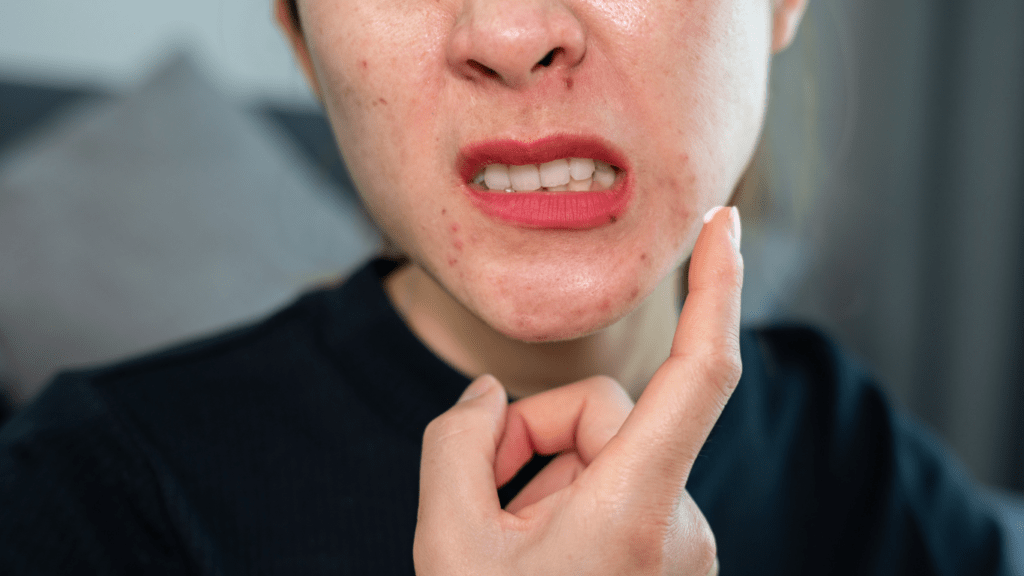Exploring the Link Between Gut and Skin Health
Research shows the gut and skin have a remarkable connection. The gut-skin axis reveals intricate interactions that influence overall well-being.
Understanding the Gut-Skin Axis
The gut-skin axis describes how gut health impacts skin health. This bidirectional pathway suggests gut microbiome imbalances might lead to skin issues like:
- acne
- eczema
- rosacea
For instance, harmful bacteria like Escherichia coli or Clostridium may disrupt gut balance, triggering inflammatory skin conditions. Consuming prebiotics and probiotics supports a balanced microbiome, reducing skin inflammation.
Key Mechanisms Influencing Both Systems
Certain mechanisms explain the gut-skin connection.
One is the immune system’s role, where over 70% of immune cells reside in the gut.Disrupted gut flora often causes systemic inflammation, manifesting on the skin.
Another mechanism is through the gut-brain axis, where stress and emotional well-being directly affect gut health, subsequently influencing skin conditions.
Lastly, the gut regulates nutrient absorption, where deficiencies in vitamins A, D, E, and zinc can degrade skin health.
The Impact of Gut Microbiota on Skin Conditions

The gut microbiota has a significant impact on skin conditions by influencing inflammation and immune response. Dysbiosis, or imbalance in gut flora, can be directly linked to various skin ailments.
Effects on Acne and Eczema
Imbalances in gut bacteria often manifest as skin conditions such as acne and eczema. Acne, characterized by clogged pores and inflammation, is frequently connected to a disrupted gut microbiome.
Research suggests that individuals with acne often exhibit higher levels of inflammatory markers, linking gut health to skin inflammation.
Similarly, eczema, a chronic skin condition causing itchy and inflamed patches, has been associated with gut dysbiosis.
For example, children with eczema often show different gut flora compositions compared to those without the condition.
Other Skin Disorders Linked to Gut Health
Several other skin disorders also correlate with gut health. For instance, rosacea, which causes facial redness and swelling, has been linked to small intestinal bacterial overgrowth (SIBO).
Studies have found a significant reduction in rosacea symptoms following SIBO treatment. Psoriasis, marked by red, scaly skin patches, also shows a connection to the gut microbiome.
Patients with psoriasis often have altered gut bacteria and increased intestinal permeability, leading to systemic inflammation. Maintaining a healthy gut microbiota positively impacts these and other skin conditions.
Dietary Influences on Gut and Skin Health
Maintaining optimal gut health directly impacts skin condition. The foods consumed play a significant role in this gut-skin connection.
Probiotic Foods and Their Benefits for Skin
Probiotic foods, such as yogurt, kefir, sauerkraut, and kimchi, enhance gut flora balance. These foods deliver beneficial bacteria to the gut, reducing inflammation.
For instance, yogurt with live cultures restores gut balance and skin clarity. By consuming kefir, the gut lining strengthens and skin complications decline.
Fermented foods like sauerkraut and kimchi introduce diverse bacteria strains, promoting both gut and skin health. Consistent intake of these foods can reduce the incidence of acne, eczema, and psoriasis.
Dietary Changes for Improved Gut Flora and Skin Health
Certain dietary adjustments can enhance gut flora and skin conditions. Introducing more fiber-rich foods, such as whole grains, fruits, and vegetables, nourishes beneficial gut bacteria.
For example, apples, bananas, and oats provide prebiotics, fostering bacterial growth. Additionally, reducing sugar and refined carbohydrates minimizes gut inflammation and skin breakouts.
By incorporating omega-3 fatty acids, found in fish, flaxseeds, and walnuts, gut inflammation decreases, resulting in healthier skin. Limiting processed foods ensures a balanced gut environment, lowering skin issues linked to dysbiosis.
These dietary changes, coupled with probiotic food intake, substantially improve both gut and skin health.
Current and Emerging Research
Recent research illuminates the intricate connection between gut health and skin health. Investigations are ongoing, offering promising insights into how gut microbiota impacts skin conditions.
Recent Studies and Their Findings
Several studies highlight the gut-skin axis’s influence on dermatological health.
- A study published in Microorganisms (2020) found that patients with acne had distinct gut microbiota profiles compared to individuals without acne.Differences in gut bacteria composition were linked to inflammation, which could exacerbate acne.
- Another study in Dermatology and Therapy (2019) demonstrated that probiotic supplementation reduced symptoms of eczema by modulating the immune response and restoring gut microbiota balance. Researchers noted fewer flare-ups and improved skin hydration in participants taking probiotics.
- In 2021, research in The Journal of Clinical and Aesthetic Dermatology connected gut dysbiosis to rosacea and psoriasis. Patients with these conditions often showed a disrupted gut barrier, leading to systemic inflammation and skin issues.
This further validates the importance of a balanced gut microbiome for maintaining healthy skin.
The Future of Dermatological Health and Nutrition
Future research promises to deepen our understanding of the gut-skin relationship. Emerging studies are focusing on personalized nutrition plans that cater to individual gut microbiota profiles.
These tailored diets could optimize gut health and subsequently improve skin conditions.
Probiotic and prebiotic supplements are being investigated for their potential to treat various skin disorders.
Upcoming clinical trials aim to determine specific strains of probiotics that may offer the most significant benefits for skin health.
Researchers are also exploring postbiotics, metabolites produced by probiotic bacteria, and their direct effects on skin health. Postbiotics could provide new avenues for treating skin conditions through gut health regulation.
Advances in microbiome sequencing technologies are paving the way for precise and personalized approaches to skincare.
By understanding the unique gut microbiota of each individual, dermatologists could recommend specific dietary and probiotic regimens to enhance skin health.
These ongoing and future studies underscore the critical role of gut health in dermatology, promising improved therapeutic strategies for skin disorders.


 Edward Strzelecki is a valued article writer at Body Care And Matter, known for his straightforward and accessible approach to health and wellness topics. With a focus on clarity and practicality, Edward's writing provides readers with easy-to-understand information that they can apply in their daily lives.
Edward Strzelecki is a valued article writer at Body Care And Matter, known for his straightforward and accessible approach to health and wellness topics. With a focus on clarity and practicality, Edward's writing provides readers with easy-to-understand information that they can apply in their daily lives.

